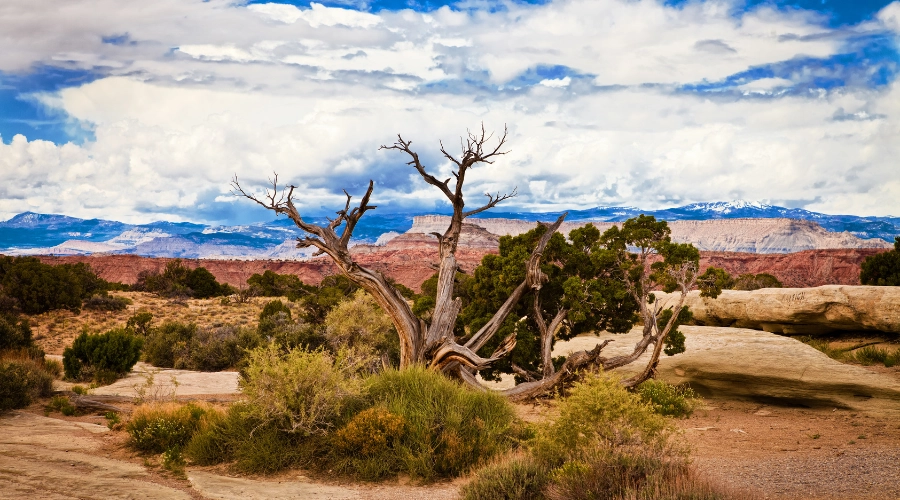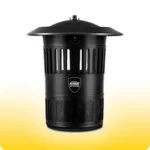What to Expect This Summer – Weather Predictions and Mosquito Impact 2024

As we approach the summer of 2024-25, many Australians are wondering what kind of weather to expect and how it might impact various aspects of our lives. Will it be the typical hot and dry summer we often expect? Or is something different on the horizon? With the forecast hinting at wetter conditions, what might this mean for pesky mosquitoes and the risk of bushfires? Let’s dive into the forecasts and their potential implications.
What to Expect this Summer? Wet/Dry ? How to plan your Summer?
Surprisingly, this year, instead of the usual dry heat, the Bureau of Meteorology is predicting a wetter-than-average summer for much of eastern and southern Australia. This unexpected twist is largely due to the development of La Niña conditions and a negative Indian Ocean Dipole (IOD) pattern, which means more moisture is headed our way. To dive deeper into these forecasts, you can visit the Bureau of Meteorology climate outlook. But what does this mean for our summer plans?
Eastern Australia: Cooler Temperatures, Perfect for Outdoor Fun!
Western Australia: Perfect Beach Weather on the Horizon!
The silver lining to all this rain is that temperatures are expected to be cooler than usual, particularly in areas like New South Wales and southern Queensland. Milder weather makes this the perfect time for coastal hikes, Museum visits, cozy cafes, beach days, and camping trips or wine-tasting in regions like the Hunter Valley.
Plan Your East Coast Summer: With cooler weather, take the opportunity to explore gems like Byron Bay, Jervis Bay, or the Great Ocean Road. The rain-fed landscapes will be greener, making national parks and coastal walks like Blue mountains and Dorrigo even more beautiful. Don’t forget to pack light rain gear for unexpected showers.
While the eastern states may be dodging rain, Western Australia is in for warmer-than-usual conditions, with Perth potentially seeing its third-warmest summer on record. This might be hot, but it’s also perfect for beach lovers and water sport enthusiasts. The endless sunshine creates the ideal backdrop for summer fun.
Make the Most of WA’s Heat: The warmer weather in WA means it’s time to hit the coast. Iconic beaches like Cottesloe, Scarborough, and Rottnest Island will be buzzing with summer energy. For a refreshing getaway, head to the Margaret River region for some coastal breezes, world-class wineries, and gourmet food experiences.
Central Australia: Dry Heat Calls for Adventurous Spirits!
Northern Australia: Tropical Storms and Lush Landscapes!
Central Australia is expected to remain hot and dry this summer, with places like Alice Springs experiencing their usual summer scorchers. While the conditions can be tough, the clear skies and dry heat make it an ideal time to explore Australia’s vast desert landscapes.
Adventure in the Outback: Visit Uluru for stunning sunrises and sunsets, or take a road trip through the MacDonnell Ranges. Just be sure to pack plenty of water, sunscreen, and hats, and plan activities early in the day before the heat becomes too intense.
Northern Australia will continue to experience its usual wet season, with high humidity and frequent tropical storms. The increased rainfall will enhance the region’s lush beauty, making it a vibrant time to visit.
Explore the Lush North: In the north, the wet season means vibrant rainforests, cascading waterfalls, and thriving wildlife. Visit Kakadu National Park or take a boat tour through the Daintree to fully experience the wet season’s magic. For marine adventures, explore the Great Barrier Reef when the weather allows.
Tasmania: Embrace the Cooler, Rain-Kissed Beauty!
Tasmania is gearing up for a summer with more rainfall than usual. This increased moisture will enhance the island’s already stunning natural beauty, making it a fantastic time to explore.
Experience Tasmania’s Summer: The extra moisture will make landscapes even more picturesque. Take advantage of the cooler weather to visit Hobart’s Salamanca Market, explore the Cataract Gorge in Launceston, or enjoy the stunning views in the Cradle Mountain-Lake St Clair National Park.
Mosquitoes: A Raising concern
With the increasing rainfall, mosquito populations are set to rise significantly. The excess water from rain creates ideal breeding grounds for mosquitoes. These insects lay their eggs in stagnant water, leading to a surge in their numbers. This can extend the mosquito season, increasing the chances of encountering these pests and elevating the risk of mosquito-borne diseases.
Why It Matters?
Mosquitoes are more than just an annoyance; they pose serious health risks. They are vectors for various diseases, including:
- Dengue Fever: Characterized by high fever, severe headaches, pain behind the eyes, and joint and muscle pain. Severe cases can lead to bleeding and shock.
- Ross River Virus: Causes fever, joint pain, and rash, and can lead to prolonged joint pain that may last for months or even years.
- Murray Valley Encephalitis: A rare but potentially serious condition that affects the brain, leading to symptoms such as headache, fever, nausea, and in severe cases, can cause neurological damage.
The combination of warmer temperatures and higher humidity provides mosquitoes with a perfect environment to thrive, making it crucial to manage their population effectively.
How to Manage Mosquitoes?
To minimize the impact of mosquitoes and reduce their numbers, consider the following strategies:
- Reduce Standing Water: Mosquitoes lay their eggs in standing water. Regularly empty containers that collect water around your home, such as birdbaths, gutters, plant saucers, and discarded tires. Ensure proper drainage in your yard and use mosquito larvicides in areas where water cannot be easily removed.
- Use Repellents: Apply insect repellent containing DEET, picaridin, or oil of lemon eucalyptus to exposed skin and clothing. These repellents are effective in keeping mosquitoes at bay for several hours.
- Install Barriers: Use mosquito nets over sleeping areas to create a protective barrier. Install screens on windows and doors to prevent mosquitoes from entering your home. Repair any holes or gaps in existing screens to ensure they are fully effective.
- Utilize Traps and Zappers: Deploy mosquito traps and zappers in your outdoor spaces. These devices attract and kill mosquitoes, reducing their population and creating a more comfortable environment for outdoor activities. Some traps use carbon dioxide or light to lure mosquitoes, while zappers use electric grids to eliminate them.
- Maintain Your Yard: Keep your lawn and garden well-maintained. Trim overgrown vegetation and grass, as these can provide resting places for mosquitoes. Regularly clean and maintain swimming pools and ponds to prevent them from becoming breeding sites.
By implementing these preventative measures, you can better prepare for what to expect this summer enjoy your activities with fewer mosquito interruptions and reduce the risk of mosquito-borne diseases.
Bushfire Risk and Flood Safety
Thanks to the wetter conditions across much of the country, the risk of widespread, severe bushfires is lower this summer. However, localized risks remain, especially in drier areas or during dry spells between the rains.
Stay Fire-Safe: Even with reduced fire risks, it’s important to stay prepared. If you’re camping or spending time in bushfire-prone areas, make sure you’re up to date on local fire warnings and have an emergency plan in place.
Flood Risk: While widespread flooding isn’t expected, certain areas with high rainfall may face localized flooding. Stay updated with weather warnings and avoid flood-prone areas when planning trips. Opt for high-altitude spots like the Grampians or Flinders Ranges for stunning landscapes without the risk of rising waters.
Get Ready for a Unique Summer
This summer’s mix of wet and dry conditions will create an unusual but exciting season. Whether you’re enjoying cooler, rain-kissed days on the East Coast, soaking up the heat in Western Australia, exploring the vibrant landscapes of Northern Australia, or embracing the cooler beauty of Tasmania, there’s plenty to look forward to. By staying informed and flexible with your plans, you can enjoy the best of what Australia has to offer this summer.
So, what’s your plan this summer?
Now you know what to expect this summer? Let us know in the comments how you’re preparing for this one-of-a-kind season and what you’re most excited about!





 Mosquito Traps
Mosquito Traps